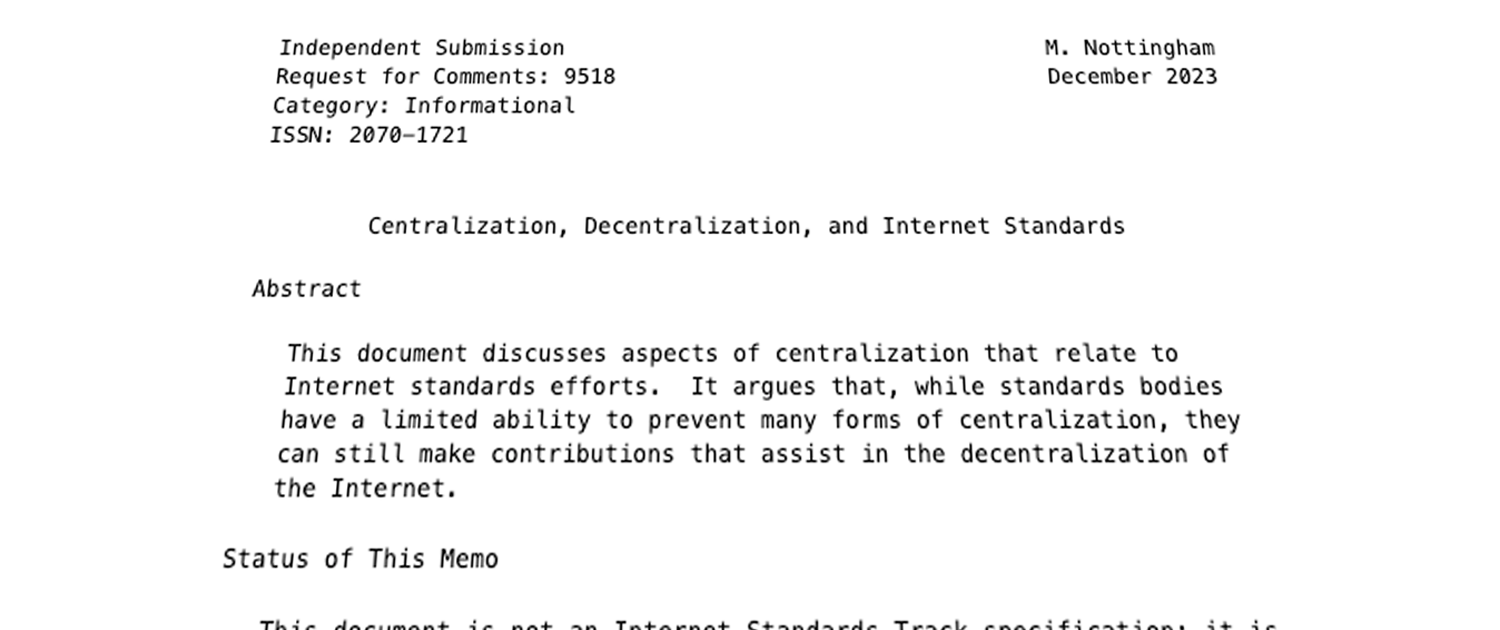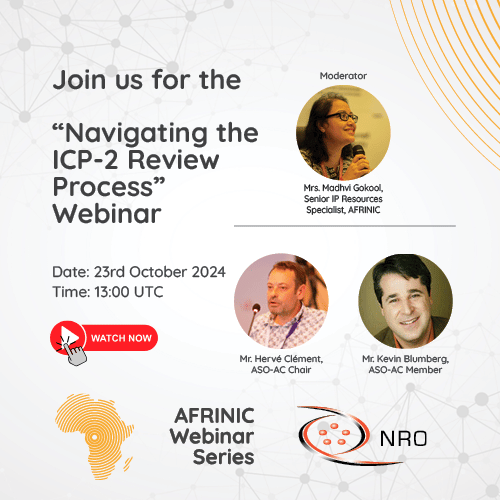Authored by:
Mark Nottingham, IETF WG Chair

RFC 9518: Centralization, Decentralization, and Internet Standards has been published after more than two years of review, discussion, and revision. It covers what centralization is, how it can be both beneficial and harmful, the decentralization strategies we typically use to control it, and finally, what Internet standards bodies can do about it.
It’s no secret that most people have been increasingly concerned about Internet centralization over the last decade. Having one party (or a small number of them) with a choke hold over any critical part of the Internet is counter to its nature: as a ‘network of networks’, the Internet fosters relationships between peers, not allowing power to accrue to a few.
As I’ve discussed previously, Internet standards bodies (like the IETF and W3C) can be seen as a kind of regulator in that they constrain the behavior of others. So, it’s natural to wonder whether they can help avoid or mitigate Internet centralization.
I started drafting a document that explored these issues when I was a member of the Internet Architecture Board. That eventually became draft-nottingham-avoiding-internet-centralization, which became an Independent Stream RFC today.
What is an RFC?
A Request for Comments (RFC) is a publication in a series from the principal technical development and standards-setting bodies for the Internet, most prominently the Internet Engineering Task Force (IETF). An RFC is authored by individuals or groups of engineers and computer scientists as a memorandum describing methods, behaviors, research, or innovations applicable to the working of the Internet and Internet-connected systems. It is submitted either for peer review or to convey new concepts, information, or, occasionally, engineering humor. See: How to Read an RFC
But it was a long journey. I started this work optimistically, believing that standards could make a difference, partly because Internet standards bodies are (among many things) communities of people who are deeply invested in the success of the Internet, with a set of shared end user-focused values.
That optimism was quickly tempered. After digging into the mechanisms that we have available, the way that the markets work, and the incentives for the various actors, it became apparent that it was unrealistic to expect that standards documents – which, of course, don’t have any intrinsic power or authority if no one implements them – are not up to the task of controlling centralization.
Furthermore, centralization is inherently difficult to eradicate: while you can reduce or remove some forms of it, it has a habit of popping up elsewhere.
That doesn’t mean that standards bodies should ignore centralization, nor that there isn’t anything they can do to improve the state of the world regarding it (the RFC explores several); rather, we should not expect standards to be sufficient to do so.
One final note: I’d be much less satisfied with the result if I hadn’t had the excellent reviews that Eliot Lear (the Independent Submissions Editor) sourced from Geoff Huston and Milton Mueller. Many thanks to them and everyone else who contributed.
Mark Nottingham has helped to define and develop the Web and the Internet since the late 90s.
The views expressed by the authors of this blog are their own and do not necessarily reflect the views of the Internet Society.
Original Post at: https://pulse.internetsociety.org/blog/what-can-internet-standards-do-about-centralization
Original Post at: https://pulse.internetsociety.org/blog/what-can-internet-standards-do-about-centralization



